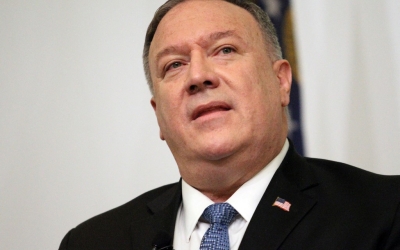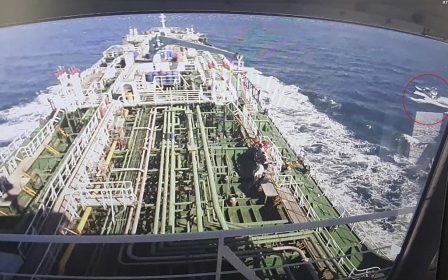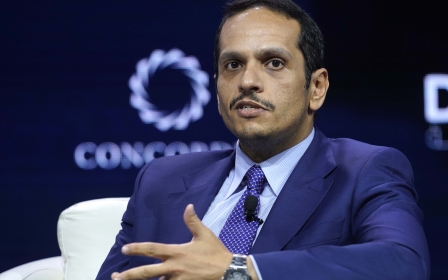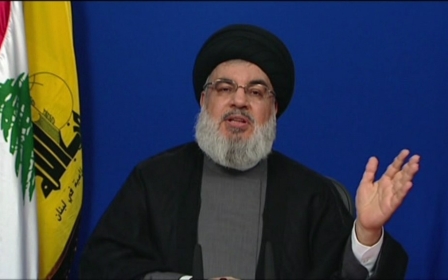US sanctions key official in Iraq's Hashd al-Shaabi paramilitary force
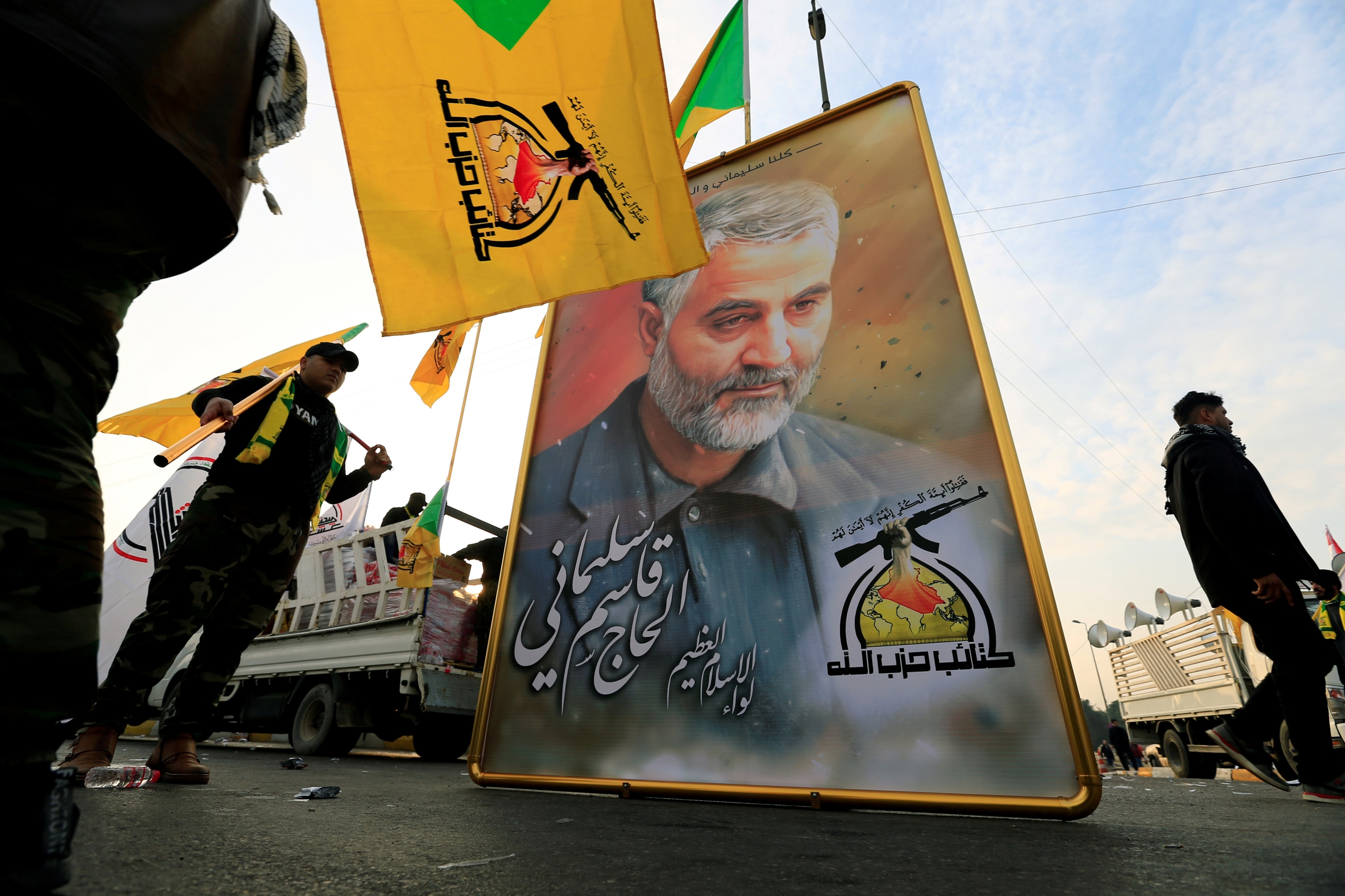
The United States on Wednesday issued a new wave of sanctions targeting Iranian and Iran-backed entities - including the chief of staff of Iraq's powerful Hashd al-Shaabi (PMU) paramilitary force.
The Treasury Department listed Abdulaziz al-Muhammadawi, also known as Abu Fadak, as a specially designated global terrorist (SDGT) and accused him of having links to the Islamic State (IS) group.
The State Department said in a statement that Muhammadawi works with the Iranian Islamic Revolutionary Guard Corps' (IRGC) Quds Force "to reshape official Iraqi state security institutions away from their true purpose of defending the Iraqi state and fighting ISIS, to instead support Iran's malign activities".
"Today's designation seeks to deny Muhammadawi the resources to plan and carry out terrorist attacks," the department said in an email.
Mohammedawi was appointed the PMU's chief of staff last year, replacing Abu Mahdi al-Muhandis, who was killed in a US drone strike alongside Qassem Soleimani, a top Iranian general.
The PMU's official Twitter account congratulated Mohammadawi late on Wednesday for being included on "America's blacklist".
Last week, the US sanctioned Falih al-Fayyadh, head of the PMU, blaming him for serious human rights abuses during Iraq's anti-corruption protests that erupted in late 2019.
Washington has previously accused the PMU of launching attacks on US forces based in Iraq.
Targeting Iranian religious charitable trust
The Treasury Department also blacklisted two Iranian foundations and their subsidiaries, controlled by Supreme Leader Ayatollah Ali Khamenei, saying the institutions enabled Iran's elite to sustain a "corrupt" system of ownership over large parts of the economy.
The department said both the Execution of Imam Khomeini's Order (EIKO) and Astan Quds Razavi posed as charitable organisations (bonyads) while controlling large swathes of Tehran's economy, including assets expropriated from political dissidents and religious minorities.
'The United States will continue to target those who enrich themselves while claiming to help the Iranian people'
- US Treasury Department
According to a 2013 investigation by Reuters, EIKO built its empire on the systematic confiscation of thousands of properties belonging to religious minorities, businesspeople, and Iranians living abroad.
Meanwhile, Astan Quds Razavi (AQR) is a multi-billion dollar religious conglomerate that owns mines, textile factories, a pharmaceutical plant and even major oil and gas firms. The heads of both AQR and EIKO are appointed by Khamenei.
In 2019, both entities were ordered by the country's government to pay taxes on their incomes, Iranian media reported.
"These institutions enable Iran's elite to sustain a corrupt system of ownership over large parts of Iran's economy," Treasury Secretary Steven Mnuchin said.
"The United States will continue to target those who enrich themselves while claiming to help the Iranian people."
Trump shifting towards terrorism designations
The latest sanctions come less than 24 hours after Secretary of State Mike Pompeo claimed that al-Qaeda had a "new home base" in Iran, without offering definitive evidence.
Since US President Donald Trump unilaterally left the Iran nuclear deal in May 2018, Washington has been piling sanctions on Iranian industries and individuals under a "maximum pressure" campaign.
President-elect Joe Biden, who is set to take the reins of power at the White House on 20 January, has made clear he aims to return the US to the agreement, which would likely result in the lifting of nuclear-related sanctions.
In recent months, Washington has begun imposing non-nuclear related sanctions, including counterterrorism designations, as a strategy to derail a future return to the deal.
The outgoing administration has announced plans to formally designate the Houthi group in Yemen as a foreign terrorist organisation (FTO), claiming that it is backed by Iran. The Islamic Republic has denied it provides support to the Houthis.
Middle East Eye delivers independent and unrivalled coverage and analysis of the Middle East, North Africa and beyond. To learn more about republishing this content and the associated fees, please fill out this form. More about MEE can be found here.


